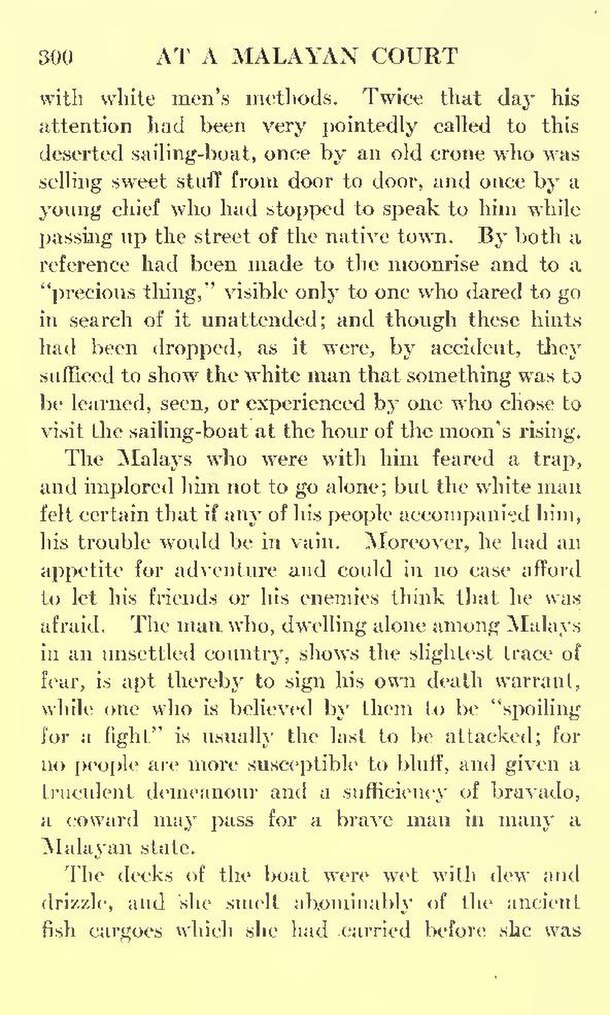with white men's methods. Twice that day his attention had been very pointedly called to this deserted sailing-boat, once by an old crone who was selling sweet stuff from door to door, and once by a young chief who had stopped to speak to him while passing up the street of the native town. By both a reference had been made to the moonrise and to a "precious thing," visible only to one who dared to go in search of it unattended; and though these hints had been dropped, as it were, by accideut, they sufficed to show the white man that something was to be learned, seen, or experienced by one who chose to visit the sailing-boat at the hour of the moon's rising.
The Malays who were with him feared a trap, and implored him not to go alone; but the white man felt certain that if any of his people accompanied him, his trouble would be in vain. Moreover, he had an appetite for adventure and could in no case afford to let his friends or his enemies think that he was afraid. The man who, dwelling alone among Malays in an unsettled country, shows the slightest trace of fear, is apt thereby to sign his own death warrant, while one who is believed by them to be "spoiling for a fight" is usually the last to be attacked; for no people are more susceptible to bluff, and given a truculent demeanour and a sufficiency of bravado, a coward may pass for a brave man in many a Malayan state.
The decks of the boat were wet with dew and drizzle, and she smelt abominably of the ancient fish cargoes which she had carried before she was
